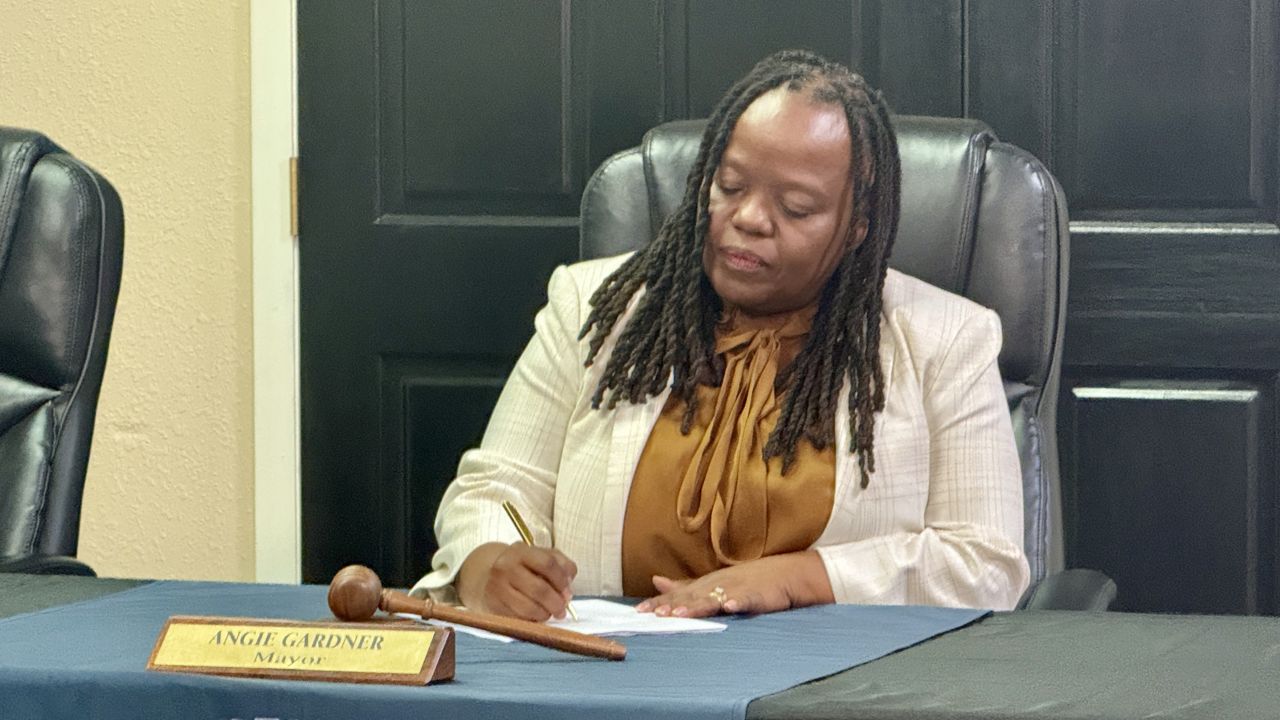ORLANDO, Fla. — University of Central Florida researchers face the possibility of losing millions of dollars as part of the Trump administration’s efforts to review all federal grants and loans.
A federal judge temporarily restrained President Donald Trump’s plan to cut billions in federal funding for research. The money comes from the National Institutes of Health, the nation’s medical research agency that is part of the U.S. Department of Health and Human Services.
Right now, a federal judge has temporarily blocked that plan after a lawsuit claims the cuts could ravage medical research at universities.
Talat Rahman, UCF trustee chair professor in the Department of Physics, says she spends most of her time doing research and teaching students trying to break into the medical profession.
“They would like to become doctors, and dentists,” she said.
She said that many students are worried about the current state of the president’s proposed plans.
Rahman, who is also a faculty union president at UCF and United Faculty of Florida, said she’s trying to calm those concerns.
“I’m hoping that this is all going to settle down,” she said.
According to a notice, the National Institutes of Health announced that under Trump, he plans to cut how medical research grants are funded.
The NIH notice stated that to ensure funds “go towards direct scientific research costs rather than administrative overhead. NIH is accordingly imposing a standard indirect cost rate on all grants of 15% pursuant to its 45 C.F.R. 75.414(c) authority.”
NIH stated “indirect costs” include “facilities” and “administration” expenses.
“That indirect funding basically provides the infrastructure for research at all universities,” Rahman explained.
Rahman said if funding cuts rise above current legal disputes, this could lead to a major crisis.
“If you’re talking about UCF, that’s going to be millions of dollars per year and that will basically mean a lot of jobs will be cut. We will not have the infrastructure to support the great research that goes on at UCF,” she said.
In 2023, more than $217 million in research awards were given to UCF. It funded projects, including moon missions and community schools.
Key federal funders that year included the National Institutes of Health who contributed $19.6 million.
“We are at the cutting of medical sciences in the world and that is because of the kind of funding that we get and the kind of research that goes on,” she said.
UCF research includes clean energy, vaccines, cancer, Alzheimer’s disease, space, physics, chemistry and climate change.
“To undo all the work that we have been doing, I think that would be disastrous,” Rahman said.
A hearing on a lawsuit challenging the funding cuts is set for Friday, Feb. 21.
According to NIH, it spent more than $35 billion in fiscal year 2023 on almost 50,000 competitive grants to more than 300,000 researchers at more than 2,500 universities, medical schools, and research institutions across all 50 states, including DC.
NIH says of this funding, approximately $26 billion went to direct costs for research, while $9 billion was allocated to overhead through NIH’s indirect cost rate.
On Sunday, United for Medical Research put out a statement on the recent administrative action, calling it “short-sided.”
The organization said facilities and administrative costs are “a very real part of conducting biomedical research,” and significantly cutting the funds, will “immediately result in less groundbreaking and lifesaving medical research.”











